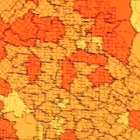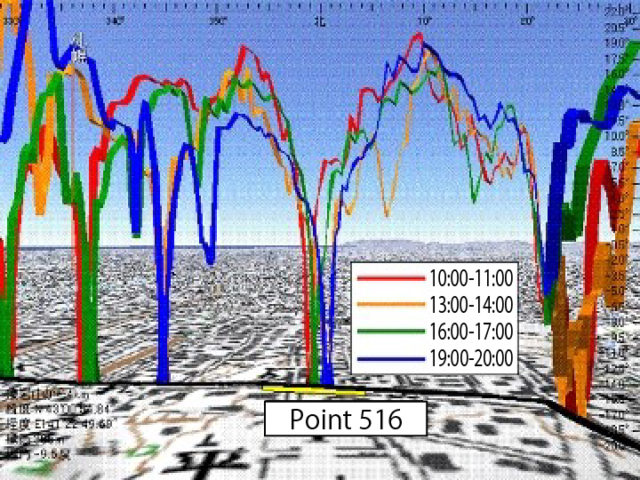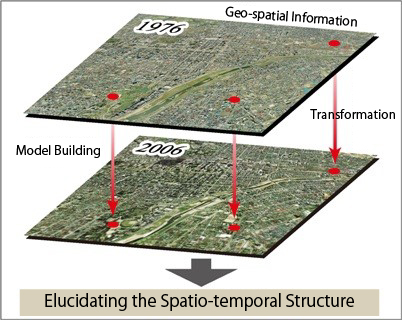Profile

- Research Subject
Development of analysis method using GIS for spatio-temporal structure of urban social and economic activities. Especially, Analysis for seasonal difference of living environment in cold, snowy area.
- Research Fields
- Geography, Geographical Information Science (GIS)
- Faculty - Division / Research Group / Laboratory
- Division of Human Sciences / Research Group of Regional Science / Laboratory of Regional Science
- Graduate School - Division / Department / Laboratory
- Division of Human Sciences / Department of Regional Science / Laboratory of Regional Science
- School - Course / Laboratory
- Division of Humanities and Human Sciences / Course of Human Sciences / Laboratory of Regional Science
- Contact
Office/Lab: 208
Email: you(at)chiri.let.hokudai.ac.jp
Replace “(at)” with “@” when sending email.Foreign exchange students who want to be research students (including Japanese residents) should apply for the designated period in accordance with the “Research Student Application Guidelines”. Even if you send an email directly to the staff, there is no reply.- Related Links
Lab.letters


Understanding people’s livelihoods based on geographical information science: Elucidating the spatio-temporal structure in metropolitan area
When the subject of geography comes up, some people may regard it as hard to deal with. But have you ever noticed that geography is actually a familiar science for looking at the living environment and livelihoods? Take Tokyo, for instance. The simple question of how this densely populated megacity came to be created inspired me to take up research on metropolitan areas. As part of a project to clarify the spatio-temporal structure of metropolitan areas, I’m currently involved in joint research with the Graduate School of Engineering. I’m working on developing a road traffic control system for Sapporo based on geographical information system and a satellite positioning system.
A student I’d supervised presented his research indicating that the capacity of disaster shelters in winter in Sapporo is insufficient to accommodate all evacuees, and the research was highly regarded at a conference. Hokkaido has an abundance of community-based research themes worth addressing.
Playing a role as a hub of industry-academia-government collaboration: Find a rewarding sense of satisfaction from contributing to society.
My laboratory plays a central role in industry-academia-government collaboration on geographical information science. We derive great satisfaction from meeting social demands by giving our research findings back to society, which motivates us to conduct new research. Furthermore, intellectual training, such as seen in the gathering and analysis of data through experiments to draw certain conclusions, is an instrumental in working at any position. If you’re interested in geography, livelihoods and social structures beyond the framework of liberal arts and science courses, why not visit my laboratory?
Message
Why not learn about state-of-the-art Geographical Information System (GIS) and geography?
GIS, referring to a system by which one can use computers to prepare, process, retrieve and analyze map data, is popular among a number of universities and corporations. Ministries and agencies as well as local governments are also making the shift from paper maps to electronic maps, thereby increasing opportunities to use GIS. Moreover, since the national scheme adopted in 2008 (i.e., Basic Plan for the Advancement of Utilizing Geospatial Information) stipulates that the national and local governments as well as private sectors shall promote the extension of the GIS, it is expected to be further applied in society as a whole. This will in turn result in the need for human resources who can highly leverage the system to contribute to the establishment of a better society.
This laboratory—one of the first hubs to introduce GIS—has served as a driving force in promoting geographical research and education via GIS in collaboration with researchers from both inside and outside the university. Undergraduate and graduate students who study at Hokkaido University can acquire geographical expertise and fieldwork techniques as well as learn about advanced GIS technology, thus enabling them to play an active role as human resources who can contribute to society through government agencies, local governments, high schools, universities, businesses and other areas. Why not join us in learning about GIS and geography at our laboratory?




